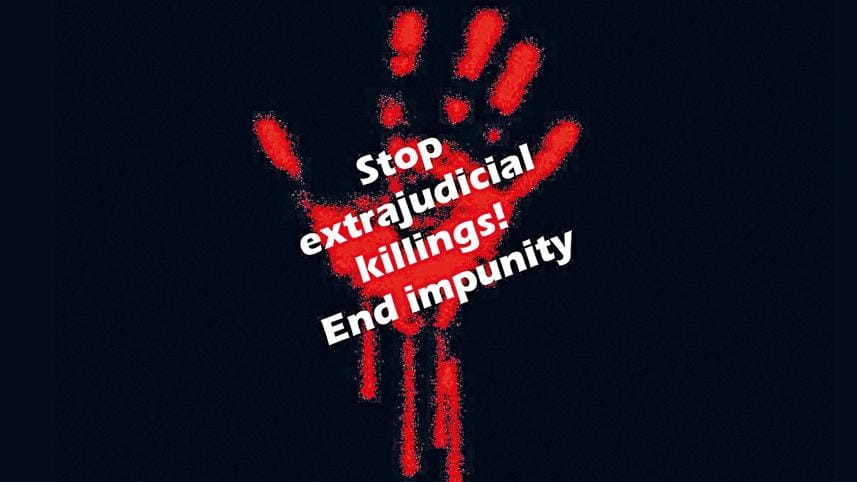The shocking culture of extra-judicial killings

Extra-judicial killings have allegedly been carried out by our law enforcement agencies for many years now. The law enforcement officials have all along maintained that the deaths in the incidents are results of either 'gunfight' or 'crossfire' and are not intentional at all. Section 97 of the Penal Code, 1860 entitles every person with the right of private defence. It lays down that every person has the right to defend his life and properties against any offence affecting the human body. Accordingly, section 96 of the Code states that nothing shall constitute an offence which is done in the exercise of the right of private defence. It has been alleged that the law enforcement agencies abuse this provision to hide the true nature, intent and extent of the so-called crossfires.
Extra-judicial killings do not have any kind of legal basis, and thus, are entirely unlawful. Extra-judicial killings are unconstitutional too for they violate Articles 27, 31, 32 and 35 of the Constitution of Bangladesh. Article 27 states that all citizens are equal before the law and entitled to equal protection of the law. Article 31 states that it is the right of all citizens to be treated only in accordance with the law. In the same vein, Article 32 unequivocally says that no person shall be deprived of life or personal liberty save in accordance with law. Article 35 lays down provisions for legal protection in respect of trial and punishment. It expresses that every person accused of a criminal offence can be punished only after a fair trial in a court of law. Therefore, anyone suspected of being involved in crime has the constitutional right to defend himself and to fair trial. But it appears that, instead of trying suspected criminals, the law enforcement officers themselves tend to act as judges and executioners of capital punishments. This culture of extra-judicial justice not only challenges the rule of law but also weakens the justice dispensation system.
Extra-judicial killing in the disguise of crossfire violates international human rights obligations of Bangladesh as well. Bangladesh has ratified all the core human rights treaties, including, the International Covenant on Civil and Political Rights (ICCPR), International Covenant on Economic, Social and Cultural Rights (ICESCR) and Convention against Torture (CAT). According to articles 2 and 6 of the ICCPR, the Bangladeshi authorities have the obligation to ensure the exercise of the right to life of the country's people and not to arbitrarily deprive them thereof. As ancillary to the obligation, there is also the obligation to provide for prompt as well as effective remedies in cases where any violations take place. But this international obligation is being repeatedly violated due to the extra-judicial killings by the law enforcement agencies.
Unfortunately, the authorities appear to be reluctant to take effective steps to stop extrajudicial killings. This inactivity of the concerned authorities contributed to the development of a culture of impunity and non-accountability.
In the extra-judicial justice system that goes by the name 'crossfire', suspected criminals do not get any chance to prove their innocence, and consequently, many innocent persons get punished for crimes they did not commit.
We must understand that crossfire is not the solution to any kinds of criminal activities. Real solutions require real efforts. Violence can only beget more violence. Justice has to be done, but not at the cost of denying the systematic legal framework.
Hence, extra-judicial killings or so-called crossfires need to be stopped. And to that end, the government must show willingness to end crossfires and take proper steps. The culture of non-accountability needs to be checked. Proper and independent departmental inquiry must be conducted in every incident of crossfire and torture in order to make the law enforcement officers accountable for their wrongdoing. Lastly, the Torture and Custodial Death (Prevention) Act 2013 must be strictly enforced by the Court to punish the police officers found guilty thereunder.
The writer is student of Law, North South University.



 For all latest news, follow The Daily Star's Google News channel.
For all latest news, follow The Daily Star's Google News channel.
Comments